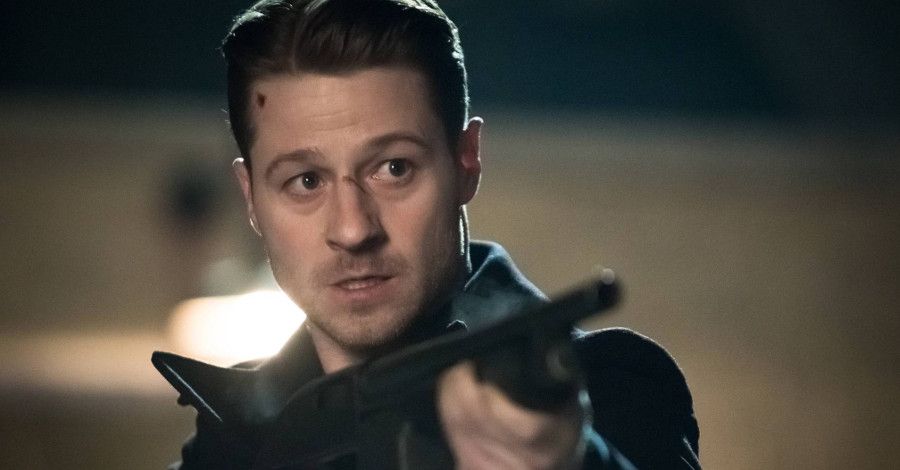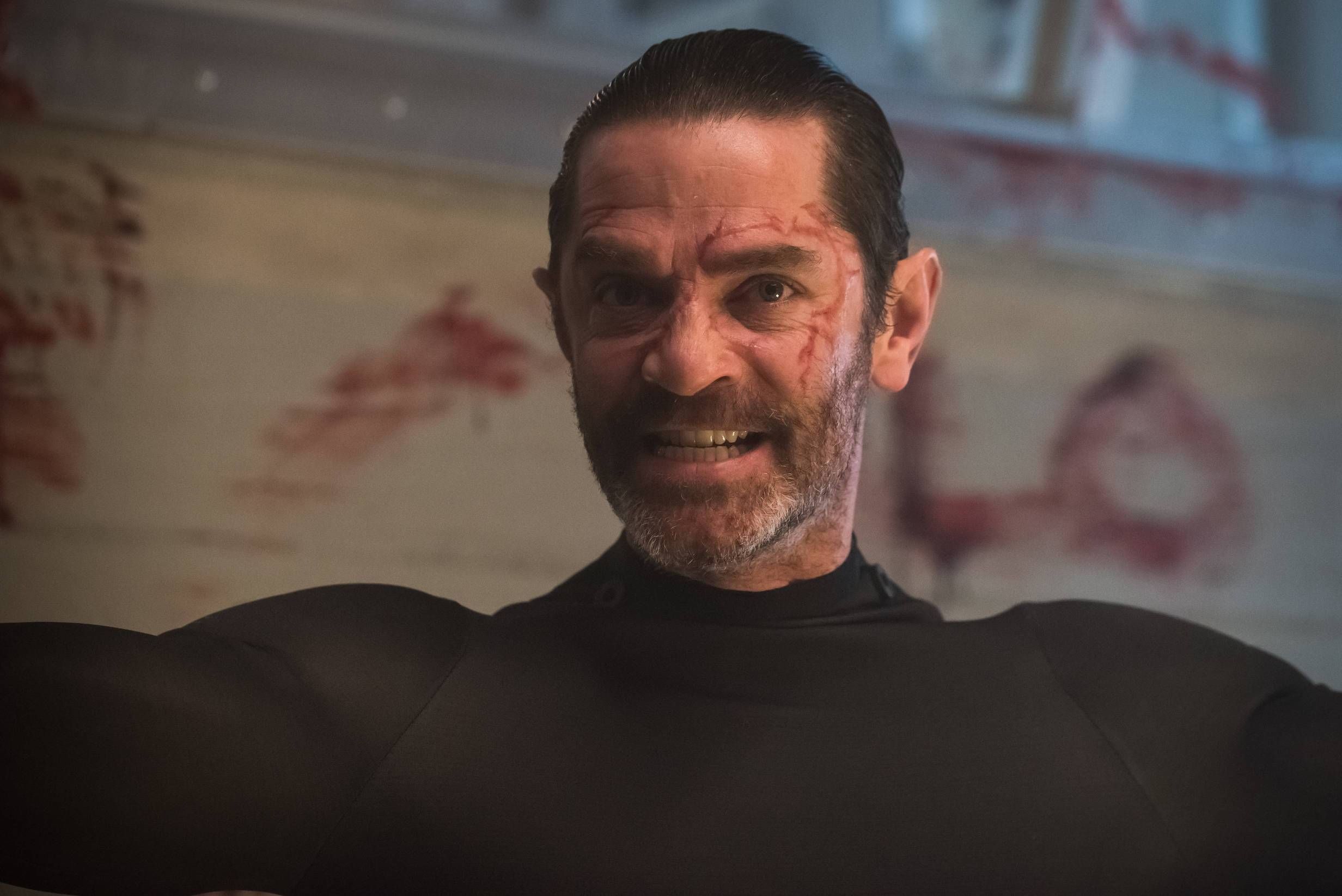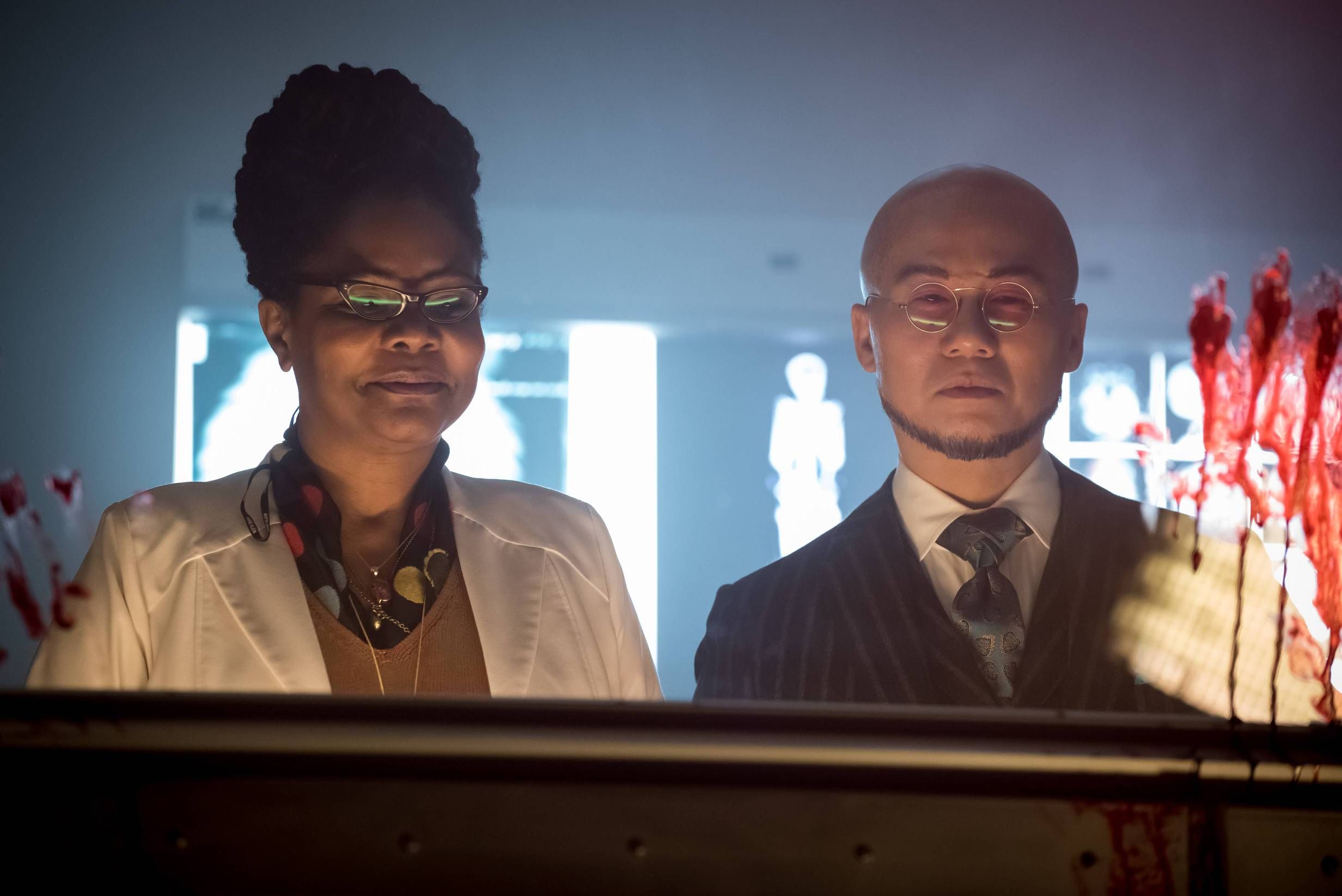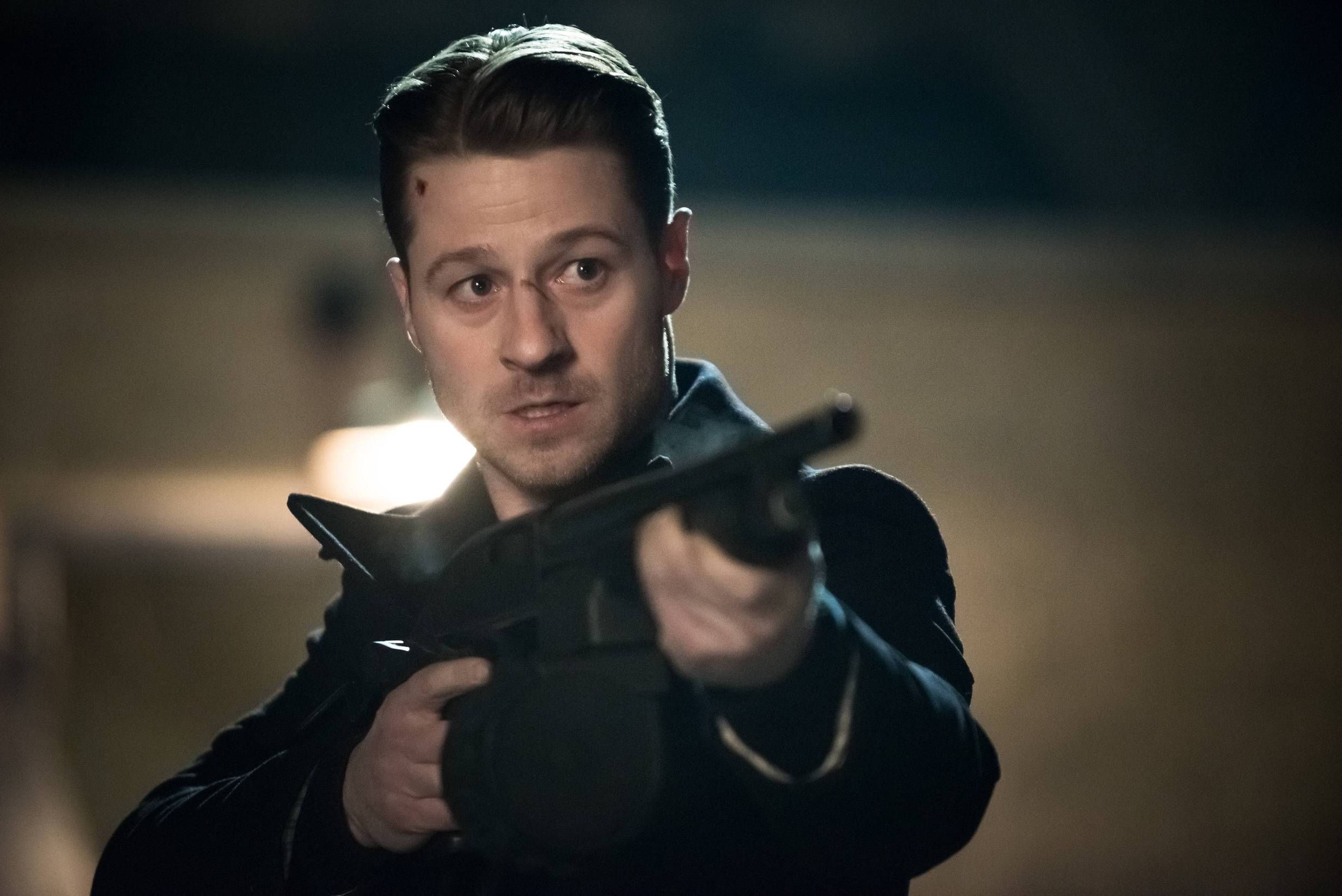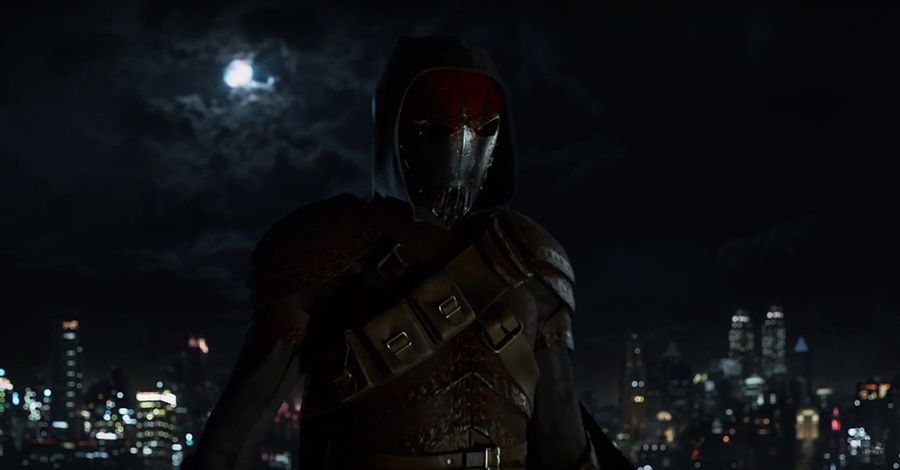What's in a name?
In comics, character identities are passed around as easily as a pack of chewing gum, but for a new take on an old character to stick, it needs to do more than wear the clothes of its predecessor. Many fans will tell you that adherence to an original creation's core concept is essential to making a new take last. But there are plenty of times when a hero or villain has been reinvented from the ground up with little more than a name or an idea -which is all preamble to the surprising fact that Fox's "Gotham" actually delivered a pretty cool version of Azrael last night.
The episode that carries the Denny O'Neil/Joe Quesada creation's name kicks off with a bloody look into the show's take on the fiery avenging angel. Former mayor Theo Galavan has been resurrected by the bizarre Hugo Strange, and apparently the process makes one super strong and murder happy. As Strange and his beleaguered assistant try to figure out how to harness the power of the lunatic lazarus, the doctor explains a bit about Galavan's cultish background with the Order of St. Dumas via a conveniently found spooooooky ancient book.
But their plotting has to pause so the other side of the episode's equation can be introduced: disgraced former police detective Jim Gordon. Though he's on the outs with his former employer, Jim is sticking to his promise to bring the Wayne murderer to justice. This presents a problem in that he and Harvey Bullock are convinced that Hugo Strange was the man behind the hit, but they have no hard evidence. When young Bruce Wayne suggests just killing the man and being done with it, Gordon takes his first moral stand of the entire series by telling Bruce that becoming a killer won't bring him justice. The moment doesn't quite work as a redemption for Jim (his about-face on going to far seems to come out of nowhere with not so much as a scene of silent reflection on the awful character he's been all season), but it is rather effective as the first of two scenes in the episode that are meant to directly telegraph Bruce learning a lesson that will make him the Batman we all know. As "Gotham" has fumbled so many of these moments in its run, it's nice to see them tying such an important aspect of the character directly to his most important emotional question via the story.
With no other options on the table, Gordon pursues his private detective work the same exact way he did his police job: by showing up on the villain's doorstep and accusing them of villainy directly. We're not exactly sure what Jim was hoping to get out of Hugo Strange when he arrived at Arkham Asylum, but an awkward conversation where he manages to upset his prey and gain no new intelligence probably wasn't it. But the illogic of the scene aside, the confrontation between the two men sets the stage for the real fireworks of the episode. Sensing the heat is on, Strange is inspired by a chance comment from new inmate Eddie Nygma to discover that the secret to unlocking Galavan's new form is to give him a new story to live. Again, for a show that has been stunningly weak on theme or real metaphorical content this moment is a pleasant surprise. The idea that the characters define themselves by building up their own fractured legends is an appropriate one for the Batman franchise and could resonate across the episode. It doesn't go much further than driving Strange to his spooky book to read up on Azrael, alas, but points to actor BD Wong for delivering the monologue with the appropriate amount of mad scientist panache.
Speaking of Nygma: the walking, riddling homage to toxic masculinity has inexplicably landed at Arkham (because crimes of passion are now understood as mental illnesses?) but at least his new state brings some fun twists. For one, after watching supposed criminal mastermind Oswald Cobblepot fail to put his boot to the neck of Arkham's inmates, Ed's ability to cow them through kindness makes for a fun bit. More importantly, the man's riddle-making ability has revolved into a riddle-solving one as he investigates the secret basement operation Strange has been running in the asylum. Of course, we all know where that path leads, but if the process of connecting the two stories remains as entertaining as Ed leading a Dirty Somewhat-Short-of-a-Dozen team of inmates or midcentury musical interludes, we won't complain.
And much like Nygma's investigations, the eventual birth of Azrael carries with it a bit of "Gotham's" black humor - the show's most endeering if inconsistent quality. When presented by Strange with the idea that he is the doctor's son and fated to take up the mantle of the avenging angel at the heart of his cult's mythology, Galavan initially eschews a chance to take up a sword and instead bashes an inmates brains in with the weapon's carrying case. If only all the needless violence in this show were that bizarre. Regardless, the wild-eyed politician is soon in full acceptance of his role, and he's out on the street murdering his way to Jim Gordon so as to keep Strange safe.
From there, the episode plays out by the numbers. Gordon's entreaties to his former boss Barnes go unheard due to his (justifiable) reputation as a loose cannon. Azrael brings the fight straight to G.C.P.D. headquarters and gruesomely murders half a dozen "blue shirts" in the process. A final battle is set for the rooftop where Barnes distracts Azrael long enough for Jim to get a big 'ol shotgun, but not long enough to avoid getting run through by the villain's broken blade. Gordon blasts the masked villain off the rooftop and into a squadcar's roof -but Azrael survives and loses his mask in front of the conveniently nearby news media. Before long, all of Gotham knows their murdered mayor has returned -including those who love him (his mafiosa sister) and those who wish he'd stayed dead (the Penguin).
But while the plot may wrap up with standard story beats, their delivery is sharp and entertaining. One of "Gotham's" longstanding strengths has been its visual style and design, and all the Azrael scenes spun by with the ethereal lighting of a horror movie. Likewise, the action beats played out fast and furious with Azrael's picking off of the police recalling Christopher Nolan's "Batman Begins." When young Bruce sees the caped killer threading his way through the beams of the precinct, the telegraphing of his inspiration is a little on the nose but fun nonetheless.
All in all, the introduction of a villain in the works for a whole season may have carried plenty of "Gotham's" annoying qualities (Despite his role in the villain's arrival, Strange's motivation for reviving the dead and setting them loose still makes no sense; Gordon is an inconsistent and unlikable lead; grim dialogue abounds; etc). But for once, the show's better angels triumphed to delver an hour that entertained even if it didn't set the world on fire. If all this show's episodes were "Azrael," watching the series would be a different experience.

